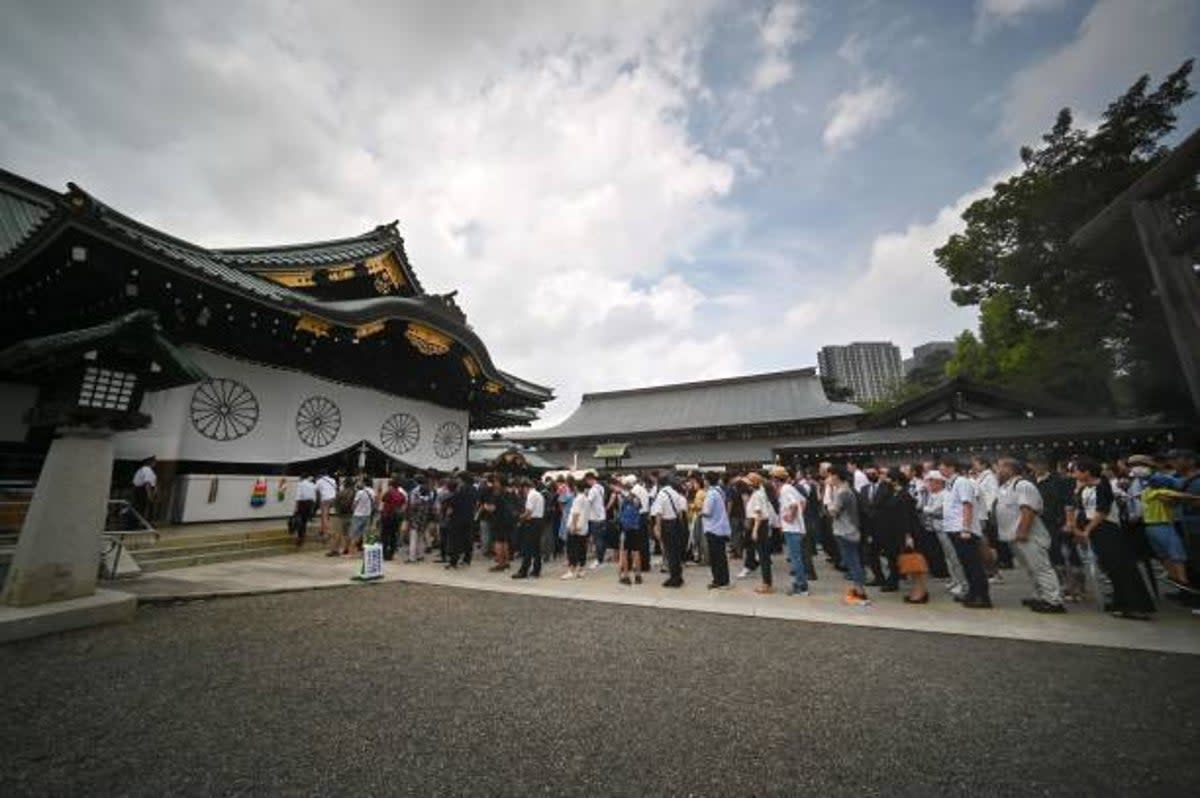South Korea ‘deeply disappointed’ by Japanese prime minister Kishida’s offering to controversial shrine

- Oops!Something went wrong.Please try again later.
- Oops!Something went wrong.Please try again later.
South Korea expressed “deep disappointment” following Japanese prime minister Fumio Kishida’s ritual offering to Tokyo’s Yasukuni Shrine, a controversial war shrine viewed by Seoul and Beijing as a symbol of Japanese militarism.
Mr Kishida and some cabinet members sent ritual offerings to the shrine on Sunday, Yonhap news agency reported, citing Japanese media.
Without directly mentioning the Japanese leader, the South Korean foreign ministry said that it regrets the Japanese leader’s visit and offering to the shrine “which glorifies Japan’s war of aggression and enshrines war criminals”.
South Korea urges Japanese leaders to “face history squarely and demonstrate humble reflection and sincere repentance” stating that this would be an important foundation for improved ties between the two countries, the ministry said in a statement.
Yasukuni Shrine, founded in 1869 by Emperor Meiji, is to honour the deaths of 2.5 million Japanese soldiers and civilians who died in wars in the 19th and 20th centuries. It also includes 14 men who were convicted by allies as class-A war criminals.
The visits to the shrine by Japanese leaders, including members of the government, have consistently drawn condemnation from both South Korea and China, who view it as a symbol of Japan’s past military aggression.
Since taking office in 2021, Mr Kishida has avoided visiting the shrine but has sent ritual offerings. Former prime minister Shinzo Abe was the last prime minister to visit the shrine while in office in 2013, a move that drew outrage from China, South Korea and even the US.
The shrine is viewed by Beijing and Seoul as a symbol of Japan’s past military aggression because it honours 2.5 million war dead, including 14 Japanese wartime leaders convicted as war criminals by an Allied tribunal.
The relations between South Korea and Japan have remained strained over disputes stemming from their bitter wartime legacy. However, the two countries have moved closer after president Yoon Suk-yeol made it a foreign policy priority to improve security cooperation with Tokyo and Washington since taking office in 2022.

